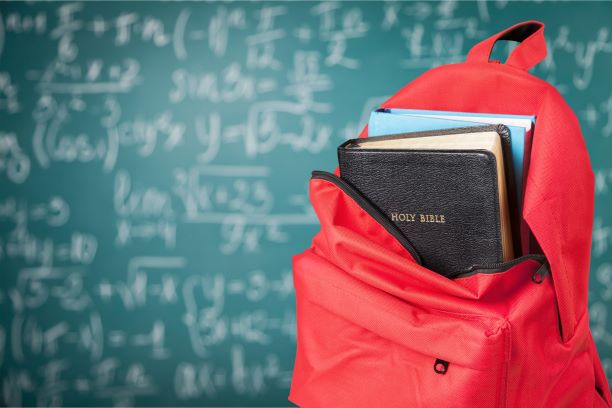INSIGHT: TCPA Is Not in Quarantine During the Covid-19 Pandemic
INSIGHT: TCPA Is Not in Quarantine During the Covid-19 Pandemic
The FCC has exempted certain calls and texts related to the Covid-19 pandemic from TCPA requirements—but only calls made by certain callers regarding certain topics. Samantha Duke looks at what is and isn’t allowed during the pandemic, offers some best practices, and warns that in general, TCPA restrictions still apply.
With most consumers staying home during the Covid-19 pandemic, many businesses are left with automated calls and text messaging as the primary way to communicate with their customers. Seeking connections with their customers may, however, cost businesses if those communications do not comply with the Telephone Consumer Protection Act (TCPA).
The current crisis has not eliminated the TCPA and its restrictions on calling and texting consumers for a commercial purpose. They still apply, even during the global pandemic.
The TCPA regulates automated informational, transactional, and marketing calls and text messages as those terms are defined by the TCPA and interpreted by the Federal Communications Commission. For residential landlines, the TPCA’s restrictions apply to artificial voices and prerecorded voice messages only.
For communications sent to mobile phones (calls and text messages), the restrictions apply to artificial voices, prerecorded voice messages, or calls made with an “automatic telephone dialing system” (or autodialer). Automated marketing calls made to both residential landlines and mobile phones require prior express written consent. This includes calls and texts that have a dual purpose—those with both informational and marketing purposes.
As was the case before Covid-19, text messages and automated calls often are the easiest, fastest, and cheapest way for a business to maintain customer contact, promote its products and services, and increase customer loyalty. This form of communication has become even more essential with consumers sheltering in place in their homes.
But text messaging is a popular subject of TCPA class action lawsuits and can result in massive settlements and catastrophic judgments in the millions of dollars. This is because the TCPA authorizes fines of $500 for each call or text message sent, and this liability does not go away in the middle of a pandemic.
While the current pandemic may constitute an “emergency” for many businesses, Covid-19 does not provide automatic relief from TCPA liability for all companies and for all types of communications.
FCC Exemptions for Some Calls, Texts
On March 20, the FCC issued a declaratory ruling outlining how certain specificmessages will be treated under the TCPA with respect to Covid-19. The FCC exempted certain calls related to the Covid-19 pandemic from TCPA requirements—but only calls made by certain callers regarding certain topics.
To qualify as an emergency purpose call exempt from the TCPA regarding Covid-19 the call must be from a hospital, health-care provider, state or local health official, other governmental official and/or a person under the express direction of such an organization and acting on its behalf. Further, the call must be “solely informational, made necessary because of the COVID-19 outbreak, and directly related to the imminent health or safety risk arising out of the COVID-19 outbreak.”
The FCC also clarified that certain Covid-19 related communications are not emergency in nature, including “advertising a commercial grocery delivery service, or selling or promoting health insurance, cleaning services, or home test kits.”
The FCC further expressly noted that calls made to collect debt, even if such debt arises from related health-care treatment, are not made for an “emergency purpose,” as those calls are not time-sensitive, do not “affect the health and safety of consumers,” and are not directly related to an imminent health or safety risk.
Missing from the declaratory ruling is any exception for calls made by businesses facing emergency situations and struggling with unprecedented disruptions. Businesses that have a need to contact their employees and customers through mass notification are not included within this declaratory ruling.
Best Practices
Thus, before any business sends a text message or automated call to a current or prospective customer, the business must still get express written consent. And, the consent must reflect the type of communication sent (i.e., consent to receive a text message).
For example, even if an existing customer has provided their phone number to a business, that business must receive consent to send a text message before hitting the send button. The Covid-19 safe harbor does not cover calls or texts that offer products or services, even if those products or services are related to the Covid-19 emergency.
Another good practice for a business is to send a confirmation text to the recipient giving them the option to opt-out from receiving future text messages. The confirmation text should contain the business name, a description of the types of message the recipient will receive (offers, coupons, etc.), that text messaging rates may apply, and how to opt-out from receiving texts in the future (example: “Text STOP to cancel.”)
Finally, businesses must make sure that no state-specific restrictions on calling during state of emergencies apply. For example, the state of emergency order in New York has triggered restrictions on sales calls via New York’s 2019 Nuisance Call Act. Louisiana’s state of emergency order has similar implications.
The final takeaway is that the TCPA regulatory mandates were complicated and confusing before the Covid-19 pandemic. Businesses that are unsure whether their communication comes within the purview of the TCPA or what level of consent is required should consult with legal counsel. A business’s desire to keep in contact with its consumers should not be its downfall in the current climate. Businesses, like everyone else, have enough on their plate.
This article was reproduced with permission from Bloomberg Law. Published June 12, 2020. Copyright 2020 The Bureau of National Affairs, Inc. 800-372- 1033. For further use, please visit http://www.bna.com/copyright-permission-request/









